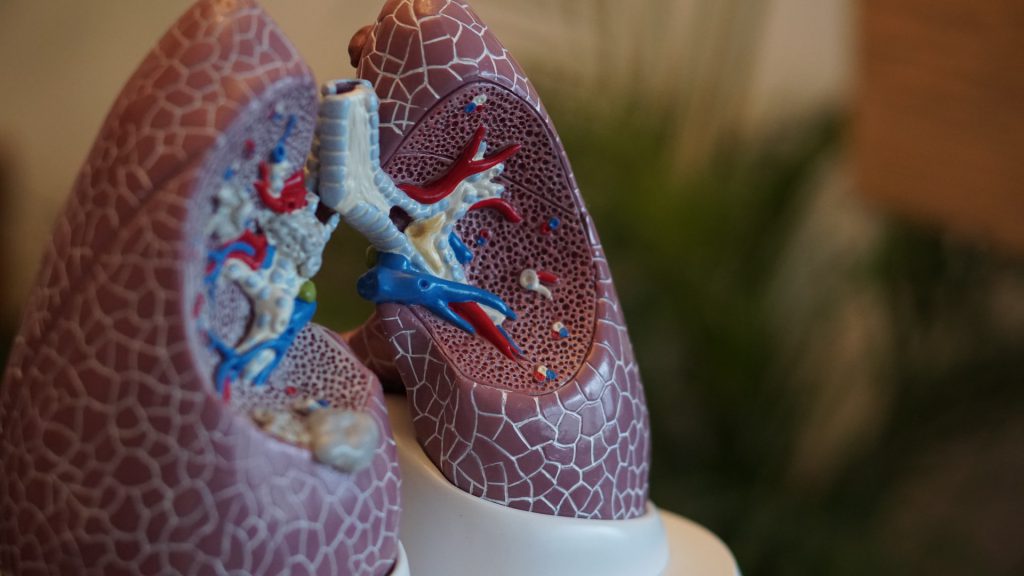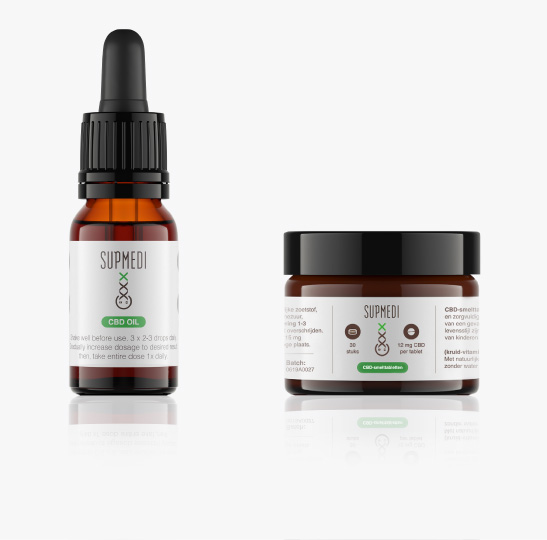
CBD Oil and asthma
28 January 2022Asthma is a very common condition that affects children as well as adults. Although usually not considered a severe condition, asthma can still have a major impact on everyday life. Asthma is caused by inflammation of the respiratory systems that leads to shortness of breath and coughing. Asthma can be kept under control by using regular medication. Still, since CBD Oil is also known to have anti-inflammatory properties, many wonder if it can be used for asthma as a natural alternative. This article explores the potential of CBD Oil for asthma.
What are the symptoms of asthma?
Asthma is one of the most prevalent clinical diagnoses in the world today. It is estimated that asthma affects about 340 million people worldwide. Asthma may lead to the following symptoms:
- Shortness of breath (‘wheezing breath’);
- Coughing;
- Shortness of breath;
- Chest pains;
- Low energy;
- Trouble sleeping.
Not all asthma sufferers experience their symptoms on a daily basis. The severity of the condition can vary over different periods of time. Asthma is caused by inflammation of the respiratory tract, which triggers tissue swelling that narrows the airways. Simultaneously, mucous glands increase production of phlegm and respiratory muscles contract. This combination of factors makes breathing difficult, causing coughs and shortness of breath, to the point where people feel as though they can’t breathe. Asthma is a chronic condition. Even though symptoms may come and go over time, the condition never really goes away.
What happens during an asthma attack?
Asthma attacks can be a frightening experience. Symptomatically, an attack mainly takes place in the lungs. The respiratory tract is triggered by hypersensitivity to specific particles in the air. In response, mucous membranes swell up, both in the lungs and in the nose and mouth. Increased production of phlegm adds to the sense of irritation. This is further exacerbated by contraction of the respiratory muscles, in which each step further adds to the sense of having less and less room to breathe. This rising sense of struggling to breathe can be an important part of what makes asthma so burdensome: it can cause a deep sense of panic and long-term anxiety. Asthma patients use medication to help relieve their symptoms.

Four types of asthma
We can distinguish four main types of asthma:
Allergic asthma
Underlying this from of asthma is an allergic reaction. The immune system responds to certain stimuli, such as house dust mites, pollen, or dander spread by pets. Inhalation of such allergens causes the body to produce histamines that can trigger an asthma attack.
Non-allergic asthma
This type of asthma is also triggered by external stimuli, but these are not allergens as such. Examples of such stimuli include exhaust fumes, perfume, or weather conditions such as cold or fog.
Exercise-induced asthma
Here, asthma attacks are triggered by exertion. Patients experiencing asthma attacks after intense exercise can cause asthma attacks, which is why they are advised to start slowly and allow their lungs to accommodate to the level of exertion. Stress and intense emotions can sometimes make symptoms worse.
Severe asthma
Fortunately, this is an uncommon type of asthma. People suffering from severe forms of asthma show many symptoms and often require hospital treatment. This type of asthma tends not to respond well to medication.
Treatment of asthma
Fortunately, several kinds of medication are available to keep asthma symptoms under control. The usual prescriptions consist of anti-inflammatory drugs and medication designed to widen the airways. These act by countering inflammation and helping the muscles of the respiratory tract relax. These drugs are commonly administered using inhalers, as these can deliver medication directly to the source of the symptoms.
Many people affected by chronic conditions struggle with the prospect of having to use medication all their life. Moreover, long-term use of such medicines can cause unpleasant side-effects. Inhalers, for instance, can cause sore throats, headaches, palpitations, and fungal infections of the mouth. They can also increase the likelihood of dental cavities. Overall, asthma can have a severe negative impact on quality of life. It is important to find a treatment that works, with minimal or no side-effects. CBD Oil may help in case of asthma too, due to several natural properties associated with this plant-based supplement.

Can CBD Oil help treat asthma?
A number of studies conducted in recent years have highlighted the potential of CBD (cannabidiol) in reducing inflammation and countering muscle spasms. These properties may have positive effects on asthma symptoms, too. Below you’ll find an overview of CBD Oil and its potential benefits for asthma:
CBD can help counter inflammation
Using the body’s own endocannabinoid system, CBD can influence so-called CB2 receptors. This accounts for the anti-inflammatory potential of CBD, as activation of these receptors can help lower concentrations of inflammatory cells. Multiple studies indicate this potential. The European Journal of Pharmacology, for instance, published a 2019 study on CBD and asthma. The trial involved mice with allergic asthma. It appeared as though CBD may help limit inflammatory reactions, which could help lung recovery. Of course, this study involved mice, so we will need to await clinical trials involving humans before we can prove conclusively whether CBD Oil is an effective treatment for people suffering from asthma.
Countering muscle cramps
Asthma attacks involve contraction of tiny muscles that line the airways. This leads to wheezing and laboured breathing. Recent studies show that CBD can help counter muscle spasms. Once the muscles of the respiratory tract relax, the airways remain open to ease breathing. This property of cannabidiol was originally discover during research into CBD Oil for epilepsy and MS (multiple sclerosis).
CBD Oil for asthma related anxiety
Anxiety is a common problem often seen in conjunction with asthma. Certain medication may cause anxiety as a side-effect. However, it is not difficult to see how asthma itself can cause anxiety: many patients worry about the panic experienced due to shortness of breath in asthma attacks. Luckily, CBD can help in either case. As well as showing potential for the symptoms of asthma itself, CBD Oil can help reduce anxiety, as research shows. It can help reduce anxious thoughts, relax the body, and improve quality of sleep due to its calming properties.
When considering these possibilities, it is important to know that CBD supplements cannot make people ‘high’. In spite of its potential for asthma and a range of other conditions, CBD Oil is non-psychoactive, leaving your driving skills and other aspects of regular functioning wholly intact.

The potential of CBD Oil for asthma
Hopefully, the information in this article has helped paint a clear picture of the potential that CBD Oil has for asthma. Its relaxing and anti-inflammatory effects can help reduce the impact of several aspects of asthma attacks.
If you plan to try CBD for yourself, do keep in mind that this cannabinoid can interact with certain specific types of medication. Always consult your doctor to make sure CBD is a good idea for your specific situation.
In addition to using Full Spectrum CBD Oil for asthma, you can also try CBD Tablets or tasty edibles, such as CBD Gummies or CBD Oatmeal. We have plenty of options to find a perfect CBD match for any taste and lifestyle!








